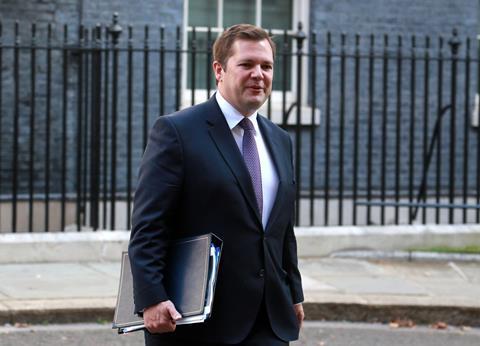But chancellor warns Tories not to raise expectations
Former housing secretary Robert Jenrick has called for a cut to stamp duty ahead of the spring budget.
In an op-ed for The Telegraph, the Conservative backbencher said stamp duty thresholds should be raised, rates lowered, or the whole thing scrapped in order to boost housing supply in the short-term.
Jenrick was appointed secretary of state for housing, communities and local government when Johnson became prime minister in 2019 and served in the role until September 2021, when he was replaced by Michael Gove in a reshuffle.

“Stamp duty is a terrible tax,” he wrote. “It exacerbates the housing crisis because it leaves people in the wrong houses: it’s an obstacle to younger people moving to take highly productive jobs and it hinders the more than a quarter of homeowners, particularly pensioners, who want to downsize.
“The duty distorts prices across the whole ecosystem, so it’s also renters who suffer.”
Other measures suggested by Jenrick included encouraging a new market for 25- or 30-year mortgages, which he said were not subject to the same “short-term pressures as a market that is indexed to either variable rates or shorter-term fixed rates”, and would give consumers “more certainty”.
Longer-term, he urged planning reforms to reduce “red tape and overbearing environmental regulations”, expanding the number of new towns using development corporations, and pursuing urban densification by driving up housing targets in the UK’s biggest cities.
During his time as housing secretary, Jenrick proposed a radical overhaul of the planning system which would have taken power away from local councils and effectively given developments permission in advance by zoning large area of land for growth.
It comes as investment bank Peel Hunt released its own analysis of how the Spring Budget could boost supply through what it described as “a final roll of the dice” to stimulate housebuilding.
Analysts Sam Cullen and Clyde Lewis described four key levers the government could pull. On the supply side, they urged government to unlock planning and simplify apprenticeships, while on the demand side, they suggested changes to stamp duty and a renewed help to buy scheme.
>>See also: Boosting development to 300,000 homes a year and beyond: our initial recommendations
>>See also: Government lacks ‘political will’ to tackle housing crisis, says Jenrick
According to the pair, for a “relatively modest investment” in these four factors, the government could add 35,000-40,000 more new homes annually.
Hopes for major tax cuts in the chancellor’s 6 March budget may, however, be futile. Jerem Hunt told the BBC’s Political Thinking With Nick Robinson podcast this week that there was less room for cuts now than there had been in the autumn.
“It doesn’t look to me like we will have the same scope for cutting taxes in the spring budget that we had in the autumn statement,” Hunt said.
“And so I need to set people’s expectations about the scale of what I’m doing, because people need to know that when a Conservative government cuts taxes, we will do so in a responsible and sensible way.”
It comes days after a warning from the IMF that budget tax cuts would likely require extra borrowing or post-election spending cuts.











No comments yet